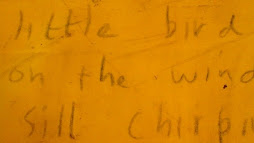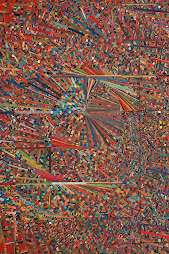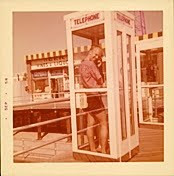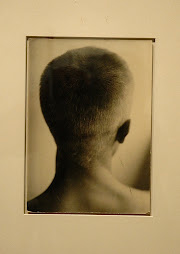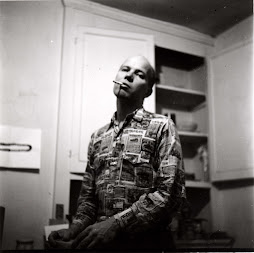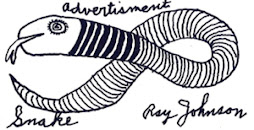Ray's anagram, so like a code, would isolate him unless he explained or was questioned. To explain THE BAD ARA [a collage by Ray] reaches THEDA BARA and moving images, the visual illusions of films. The name THEDA BARA was advertized as ARAB DEATH in the image-making of Hollywood, as though the name hid a secret. The fact is that the family name "Baranger" was shortened to "Bara." Then, in a familiar but arbitrary operation not implied by any system of language, "Bara" was reversed to "Arab," suggesting that a name could participate in a secret code which excluded people not in on the secret. Changes of name reach visual art with the names Larry Rivers, Mark Rothko, Phillip Guston, Lee Krasner and Andy Warhol -- changes for which no one had any rules to follow. Ray frequently renamed people, bringing them into his field of cross-references as though there are no rules for names. Acting without rules, or against the rules, can seem childish, but a purpose can be an experience, not of childhood, but of childish time.
The name "Eve" is a palindrome, while "Eva" reverses to "Ave," so that the second "Eve," Mary, can be hailed with a palindrome: "AVE EVA." Not everything in language happens for a reason, but almost everything can be made to serve a purpose. Thus accidents of language can be understood as being purposeful, because they seem providential after a purpose has been devised for them. That a person turns up named Letterman or even Mailman combines that person with Ray's on-going themes and images. A man who asked me why Ray had mailed items to him, when he scarcely was acquainted with him, turned out to be named Harvey, as with the rabbit; and another similar man is named Joiner. Once on the Bowery Ray approached the table which had the guest-list for a party upstairs in a loft. When asked his name, he responded, "Mailer, Norman Mailer," and was admitted to the party. Ray subjected words to his purposes by following his rule that a shorter word found in a longer word was part of the meaningful use of the longer word. He found "pond" in "correspond": "The frog jumps into the correspondence" (90 03 22). Thus he found the word "toes" in mottoes, grottoes, and especially potatoes. He could also add "toes" to a word or a name, as he might press two words together, as with "Toby" and "toes, and then rhyme "Tobytoes" with "potatoes." The rhyme makes "Tobytoes" seem to be less of an accident because it is purposeful.

+copy.jpg)

